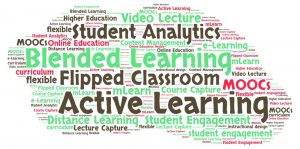
[Education Technology Transformation]
In Singapore, the education system is beginning to encourage students to take part in active learning.
However, there are still many misconceptions and myths about active learning. This causes students and tutors to be more hesitant to use it, sticking to rote learning instead.
Here is a list of the top five misconceptions about active learning, and let’s debunk them!
1. ‘Active Learning is All About Completing an Activity.’

[iStock]
To learn actively, students often write notes or take part in discussions. But completing such activities shouldn’t be the main goal. These activities only facilitate learning and help students understand the content better.
They encourage students to think critically and problem-solve, which deepens their learning. They also allow students to interact with the learning process as opposed to learning passively.
2. ‘Active Learning is the Same as Enquiry-Based Learning.’

[iStock]
Enquiry-based learning might seem similar to active learning because it encourages students to learn independently and make real-world connections through exploration and high-level questioning.
But though they’re similar, they’re not the same. Rather, it is a form of active learning and serves to encourage independent thinking and problem-solving skills.
Enquiry-based learning helps students learn through research, investigation and questioning. This is encouraged by getting students to participate in discussions or ask questions while reading.
3. ‘Active Learning Means Taking Away Tutors’ Influence.’

[Adobe Stock]
Active learning does not take away tutors’ influence. Tutors are still responsible for directing students’ learning.
After all, they must prepare lesson plans and be responsible for incorporating active learning into their lesson. For example, including group discussions and activities or giving students more time during lessons to revise.
Tutors are also in charge of monitoring students’ progress and development. Not to mention that active learning only helps students understand the syllabus and content taught. So tutors have to help students develop and learn soft skills.
4. ‘Students Have to be Physically Active.’

[123RF]
Active learning is all about keeping the brain active, not the body. Students can still sit in their seats and complete tasks without moving around constantly. Usually, these tasks tend to promote analysis, problem-solving and critical thinking.
Do note that there is a ‘physically active learning’ – where students move around, and it should not be confused with active learning.
5. ‘Active Learning Makes Students Less Respectful.’

[iStock]
Active learning strongly encourages discussion and voicing opinions. This means that sometimes, students might not agree with tutors and may voice it out.
However, discussions should be held in a healthy and respectful environment. Tutors should set clear boundaries and rules first. This way, students can engage with tutors as partners in learning while still showing tutors the respect they deserve.
Conclusion

[iStock]
There are numerous advantages active learning has for students. Yet, many misconceptions stop tutors and students from using it.
However, now that many of such misconceptions are debunked, tutors and students would be more open-minded to applying this learning technique as opposed to rote learning.
My Child Studies Hard But Doesn’t Get Good Results. What Should I Do?
